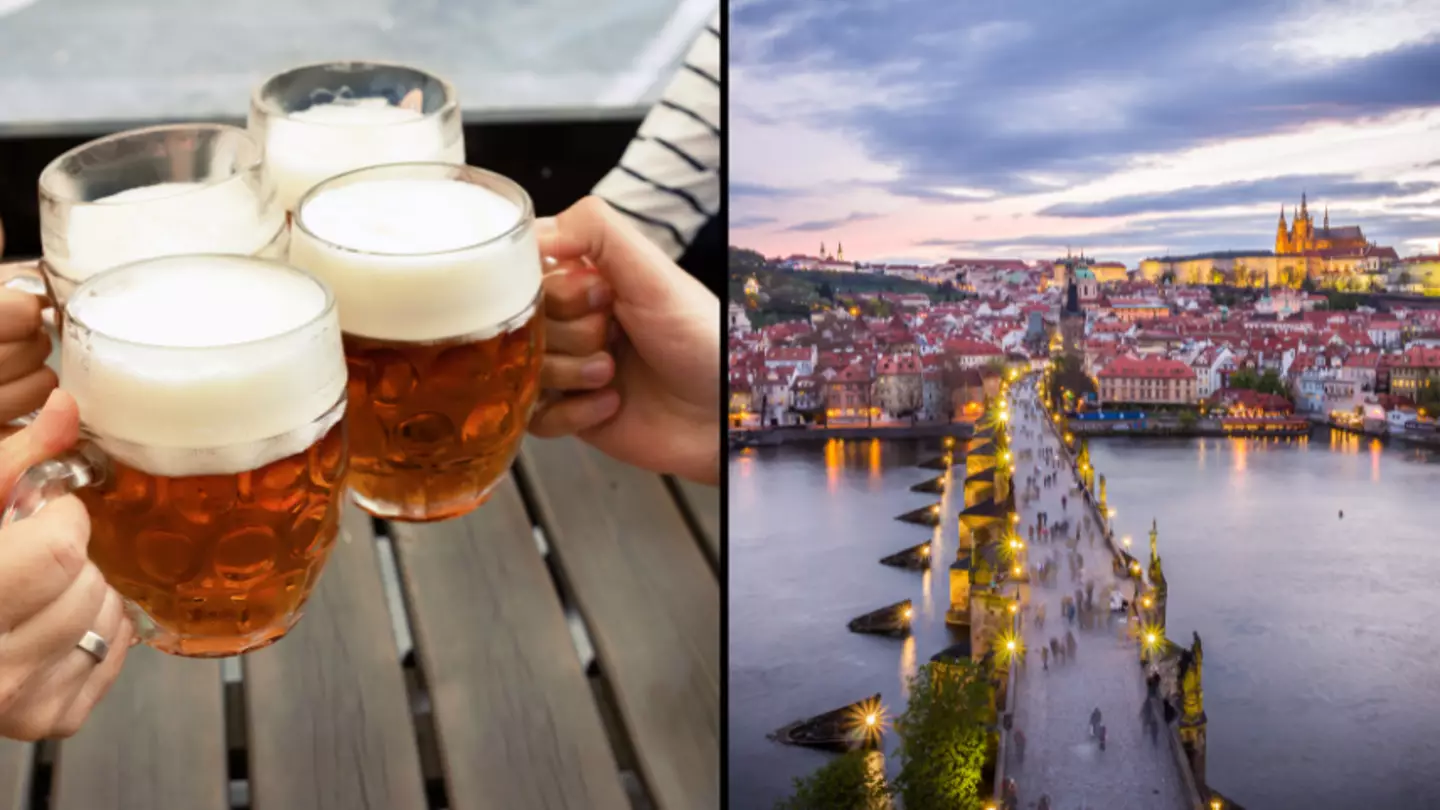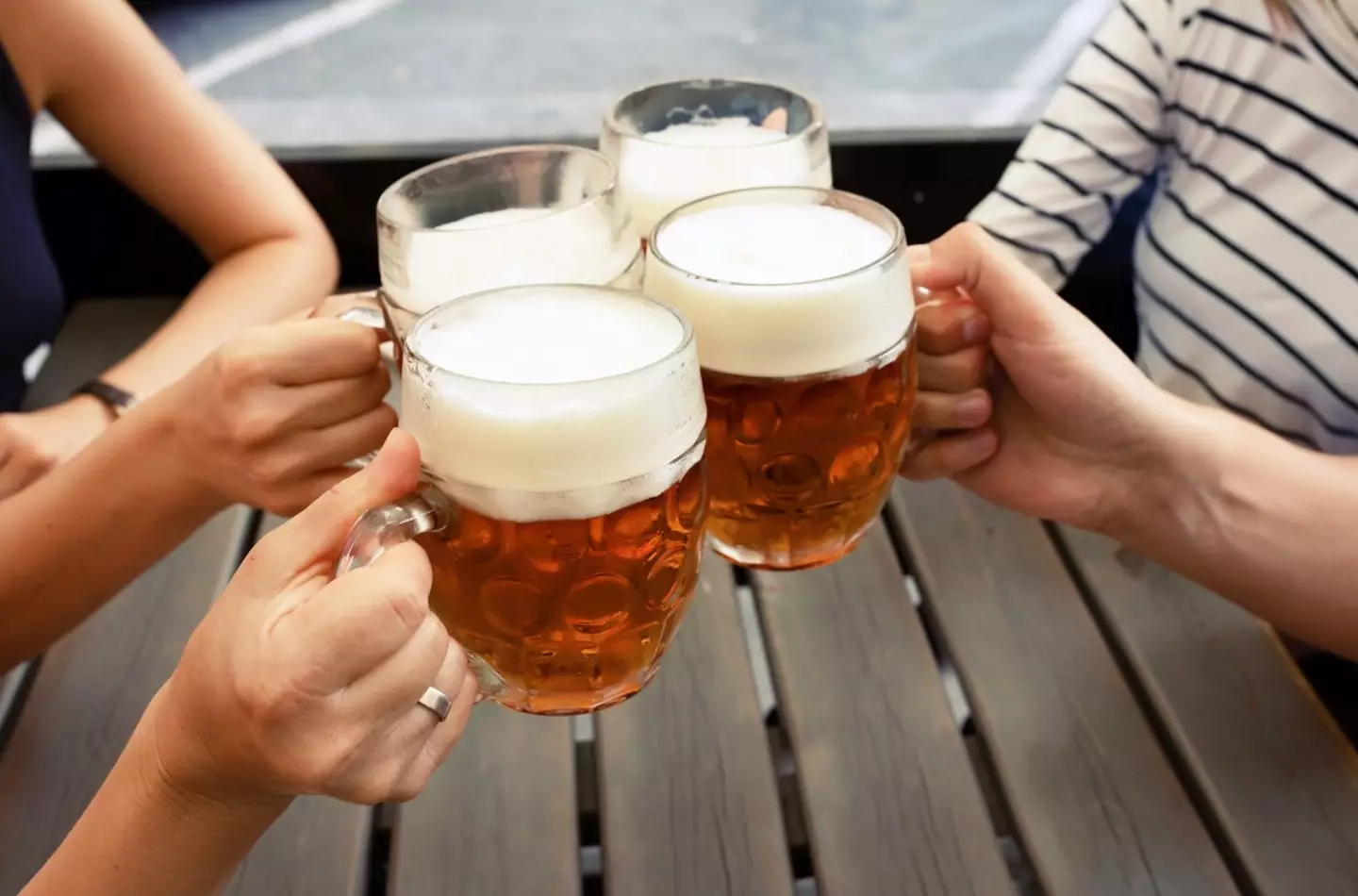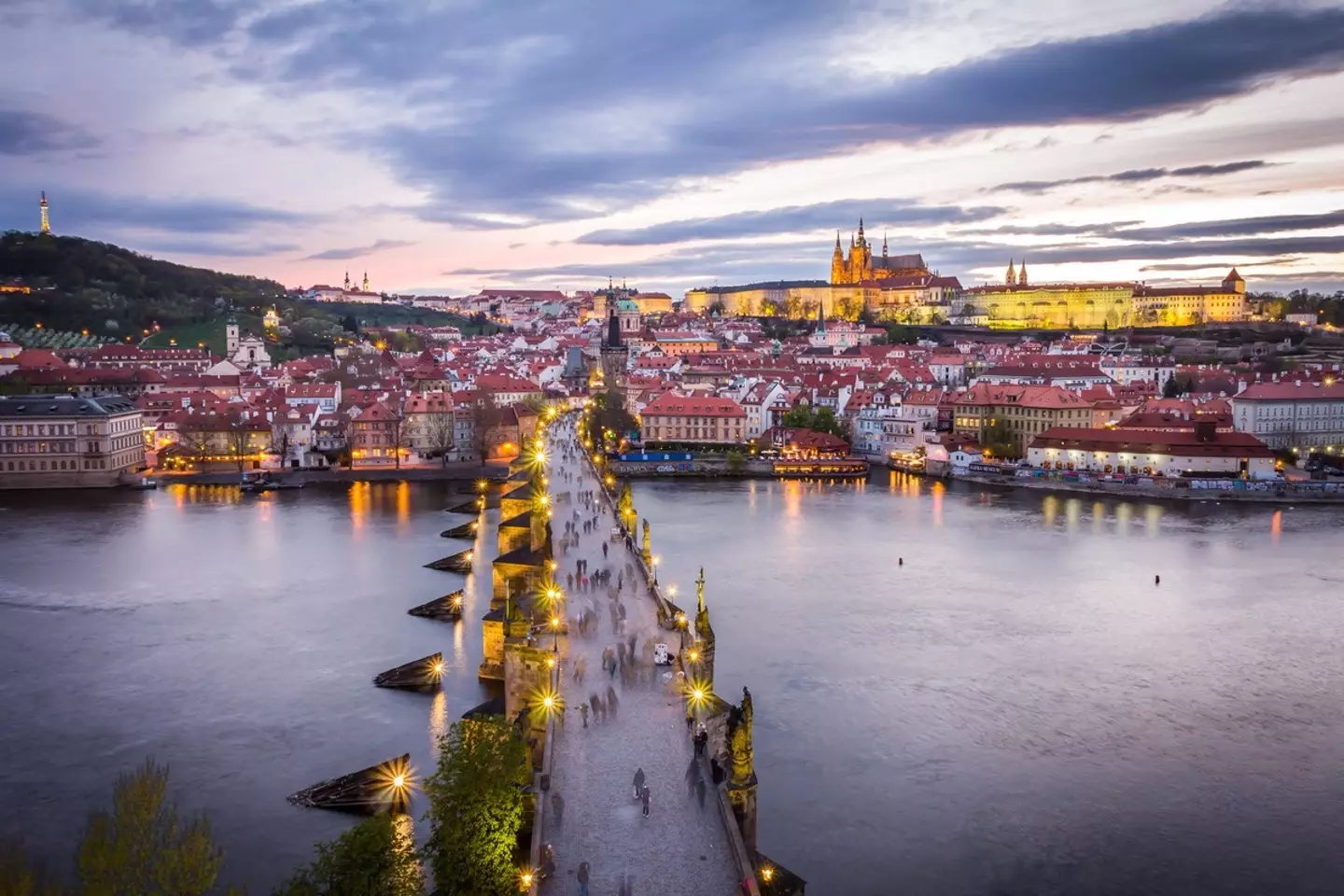
As a non drinker, watching my friends do 'Dry January' can be pretty heartbreaking.
Being the only sober one on a night out makes me feel special, but for one month of the year I just feel like everyone else.
Thankfully, things will get back to normal on 1 February and what better way to break your drinking duck than visiting the 'booziest city' in Europe.
Pints for under £2 and flights for £20 - what's not to like?
Advert
The city has always been a popular tourist hotspot in Europe, largely thanks to a well-documented reputation for great beer on a budget.
With jaw-dropping architectural landmarks like the Charles Bridge (the second oldest in the country), or the famous 600-year-old Astronomical Clock overlooking Old Town Square, and let's not forget the largest castle complex in the world, it's not difficult to understand why the locals would be so proud of their surroundings.

A few of the other noteworthy highlights include Letná Park's spectacular hillside views, Speculum Alchemiae - a miraculously intact 16th century laboratory - and the downright bizarre 'Dancing House'.
The beautiful banks of the Vltava river, which is the longest in the country, are also another popular spot with tourists and locals alike.
If all of the above sounds like your ideal travel sesh then look no further than the capital of Czechia - Prague.
The country consumes the most booze per capita of any in the world at 14.45 litres of pure alcohol per year.
Estimates suggest that the average drinker has around 481 beers a year, and cheap pints might be a contributing factor there.
A pint of local ale can be picked up for anywhere between 60p and £2.80, which for anyone who has recently paid London prices, is an absolute bargain.

However, if you're one of those who actually enjoyed 'Dry Jan' then you mind find it interesting to know that more and more young people are lowering their alcohol consumption.
Alcohol Change UK reported that over 175,000 took part in 2023, so there seems to definitely be some health benefits on offer.
According to a research study by Heineken, Gen Z’s alcohol consumption has dropped by a whopping 25 percent over the last four years.
Consultant counselling psychologist Dr Ritz Birah explained: "I think that there has been a rise in people adopting a more sober-curious lifestyle as people educate themselves more on the impact of alcohol on the brain and body.
"They are becoming more self-reflective and thinking about the consequences of alcohol cognitively, emotionally and behaviourally.
"For example, a theme that often comes up with my clients is the potential for a wasted day and how pointless a person can feel from consuming alcohol."
Topics: Travel, Food And Drink